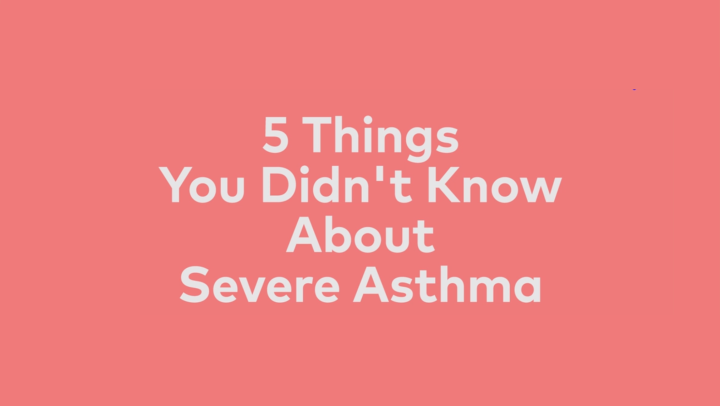
Of the 25 million Americans with asthma, only a small percentage have what’s considered severe asthma. Severe asthma, sometimes also referred to as treatment-resistant asthma, is difficult to control, despite the use of high doses of inhaled corticosteroids and other asthma control medications. People with severe asthma often have more frequent exacerbations and hospitalizations.
While hospitalized, many individuals with severe asthma are prescribed antibiotics. However, according to several studies, the addition of antibiotics to the treatment regimen doesn’t appear to improve patients’ outcomes. And in most cases, they aren’t even necessary in the first place.
What are the recommendations for treating severe asthma with antibiotics?
According to current treatment guidelines, antibiotics should only be prescribed for hospitalized patients with asthma when there is clear evidence of an infection. When infection doesn’t appear to be present, treatment should instead focus on improving symptoms. This includes the use of bronchodilators to help open up the airways and systemic corticosteroids, in pill form or as an infusion into a vein, to reduce inflammation in the lungs.
But in practice, many studies have found that even without any signs of infection, about half of patients admitted to the hospital for an asthma exacerbation are treated with antibiotics. The same studies have shown these patients don’t benefit from this additional treatment. In fact, those who received antibiotics had even longer hospital stays, higher medical bills, and increased risk of developing diarrhea due to the antibiotics.
Such findings have prompted concern since the unnecessary addition of antibiotics to treat severe asthma appears to do more harm than good. Additionally, over-prescription of antibiotics can contribute to the development of resistant strains of bacteria in the future.
What other options are available for severe asthma treatment?
The goal of treating severe asthma is to gain better control over your symptoms, preventing frequent flare-ups that may land you in the emergency room or hospital. Fortunately, in the last several years, new treatments have emerged, offering significant promise. If you have severe asthma, you may want to talk to an asthma specialist about the following treatments:
- Biologics: These medications are made from living cells. They target specific points in your body’s inflammatory response that affect your airways and lead to difficulty breathing. Your doctor can run tests to learn more about your particular type of asthma. If you have asthma that’s triggered by allergies, omalizumab (Xolair) may help. If your asthma is caused by a type of white blood cell called an eosinophil, medications including reslizumab (Cinqair) or mepolizumab (Nucala) may be prescribed. Biologics are given as an injection or an intravenous (IV) infusion.
- Tiotropium (Spiriva): Initially used as a treatment for chronic obstructive pulmonary disorder (COPD), tiotropium may also be used for cases of treatment-resistant asthma. It’s an inhaled medication that’s been shown to improve lung function and decrease asthma exacerbations. Tiotropium should be taken in addition to inhaled corticosteroids.
- Bronchial thermoplasty: Certain cases of severe asthma may benefit from this procedure, in which heat is applied to your airway to reduce the amount of smooth muscle that’s present. This makes it harder for your airway to constrict and narrow, causing asthma symptoms. It’s performed over three sessions, each a few weeks apart.
Severe asthma can be challenging to manage, but new treatments are improving its outlook. You can optimize your results by avoiding your asthma triggers, taking your medication correctly, and doing your best to stay healthy.






















